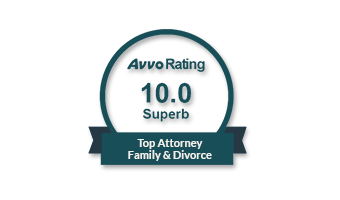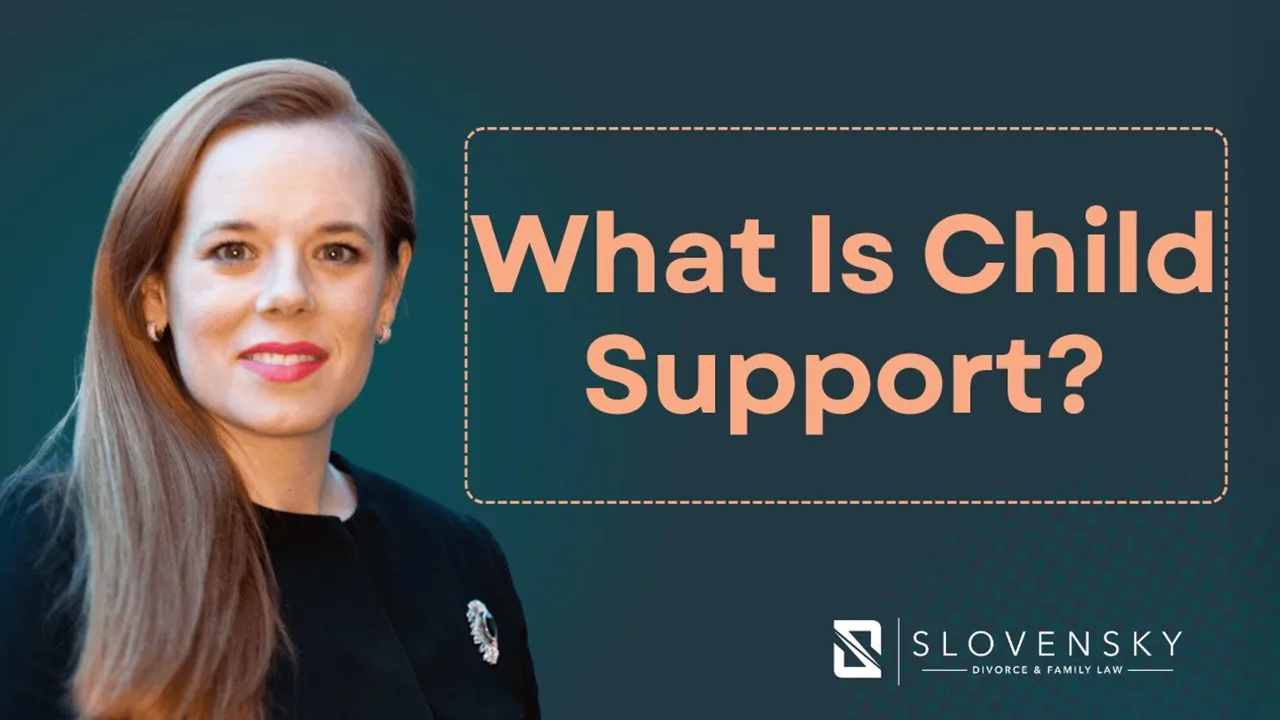Practice Area
Virginia Child Support Attorney
Child support disputes are easier with the right legal team.
While child support is often based on a “guideline” calculation, there are often a number of different ways to calculate what counts and doesn’t count in the calculation. Courts can also “deviate” from the calculation. It’s important to remember that child support is intended to make sure the financial interest of the child are not affected should their parent decide to part ways.
That’s why Slovensky Law is here to protect both your rights and the best interests of the child.







How is the amount of child support determined?
Virginia child support is set according to Virginia’s child support guidelines, a mathematical formula established under the Virginia Code. The guidelines take into account each parent’s income and are generally straightforward when both parents are salaried or wage-earning workers with a single job, no child support arrearages, and working to their full income-producing capacity. The guidelines can become a little more complicated when parents share custody, the child has unusual expenses (special needs children), or one parent is voluntarily underemployed.
Primary factors considered include the number of children, each parent’s income and the amount of time each parent will provide primary care.
Some sources of income that might be included for child support are:
- Salary and wages earned
- Commissions
- Bonuses
- Pensions
- Dividends
- Severance pay
- Employee benefits (such as housing or 401K matching)
- Rental income
- Spousal support (Spousal support payments are considered income to the person receiving them, but they are deducted from the income of the person making the payments for child support purposes)
- Social Security retirement or disability
- Workers’ compensation
- State or private disability
- Unemployment insurance benefits
- Military retirement benefits
There are exceptions that can make child support very complex and difficult to determine.
- If a parent is self-employed or a contract employee
- If a parent is underemployed
- When a parent has a significant child support arrearage
- When a child has extraordinary medical expenses, the amount of support calculated by the statutory formula will not be enough. A child’s special needs, which may merit greater support and/or continuation of support beyond the age of 19 or high school graduation
- If your child attends a private school, the parents may not agree on how that expense should be shared.
Excluded sources of income include:
- Public assistance
- Supplemental Security Income payments
- Support received for a child from another marriage or relationship is not included as income to the parent receiving the payments, and it is excluded from the income of a person making the child support payments.


Hiding Income and Income Imputation
If you believe your child’s parent is hiding income, or underemployed, you likely need an attorney to represent you in your child support case.
Even if the paying parent is not hiding income, but is working less than he or she is capable of doing, you may be eligible for “imputation” of income to that parent – meaning the court will treat him or her as if she was making more money than he or she is.
When this situation occurs, it’s imperative to hire an attorney experienced at subpoenaing records and consulting with experts, where necessary, to convince a Court that a child support payor’s income is higher than he or she wants to tell the Court it is, or that he or she is capable of earning more than they currently are.
Tricky rules of evidence apply in cases where one party is hiding income or underemployed, and an attorney is necessary to make sure that all the facts get in front of the judge.
At Slovensky Law, we regularly subpoena employment records and engage in other discovery methods when a client suspects that a payor is not being honest about their income.
Frequently Asked Questions About Custody Modification
What sources of income are included in child support calculations?
Income sources that may be included are salaries, wages, commissions, bonuses, pensions, rental income, spousal support received, Social Security benefits, workers’ compensation, and unemployment benefits. Certain benefits, like public assistance or Supplemental Security Income (SSI), are excluded.
How is child support calculated in Virginia?
Child support in Virginia is calculated using state guidelines, which consider factors such as each parent’s income, the number of children, and the amount of time each parent spends with the child. The formula also accounts for additional expenses like healthcare and childcare.
Can child support be adjusted for special circumstances?
Yes, child support can be adjusted for special circumstances, such as a child’s extraordinary medical expenses, special needs, or private school tuition. Courts may deviate from the standard guidelines to ensure the child’s needs are met.
What happens if a parent is underemployed or hiding income?
If a parent is underemployed or hiding income, the court may impute income, meaning it will calculate child support based on what the parent is capable of earning rather than their actual reported income. Evidence, such as employment records, may be required to prove this.
Can child support orders be modified in Virginia?
Yes, child support orders can be modified if there is a significant change in circumstances, such as a change in income, job loss, or changes in the child’s needs. The requesting parent must file a motion with the court to request a modification.
What happens if a parent fails to pay child support?
Failure to pay child support can result in serious consequences, including wage garnishment, suspension of driver’s or professional licenses, fines, and even jail time. The court may also take steps to enforce the order.
Does child support cover college expenses in Virginia?
Child support typically ends when the child turns 18 or graduates from high school, whichever comes later. However, support for college expenses is not automatically included unless agreed upon by the parents or ordered by the court.
Can child support be ordered for a child with special needs beyond age 18?
Yes, child support may continue beyond age 18 for a child with special needs if they are unable to support themselves due to a physical or mental disability. The court will evaluate the child’s specific circumstances.
How does shared custody affect child support?
In shared custody arrangements, child support is calculated based on the amount of time each parent spends with the child and their respective incomes. The formula accounts for the shared parenting responsibilities.
Can child support be enforced across state lines?
Yes, child support orders can be enforced across state lines under the Uniform Interstate Family Support Act (UIFSA). This ensures that parents cannot avoid their obligations by moving to another state.
Can child support be retroactively modified?
Child support modifications are generally not retroactive. Changes typically take effect from the date the modification request is filed with the court, not before.
What should I do if I suspect the other parent is hiding income?
If you suspect the other parent is hiding income, you should consult an attorney. They can help subpoena records, gather evidence, and present your case to the court to ensure accurate child support calculations.
Do I need an attorney for a child support case in Virginia?
While it is not mandatory, hiring an experienced child support attorney is highly recommended. An attorney can help you navigate the legal process, ensure accurate calculations, and advocate for your child’s best interests.


